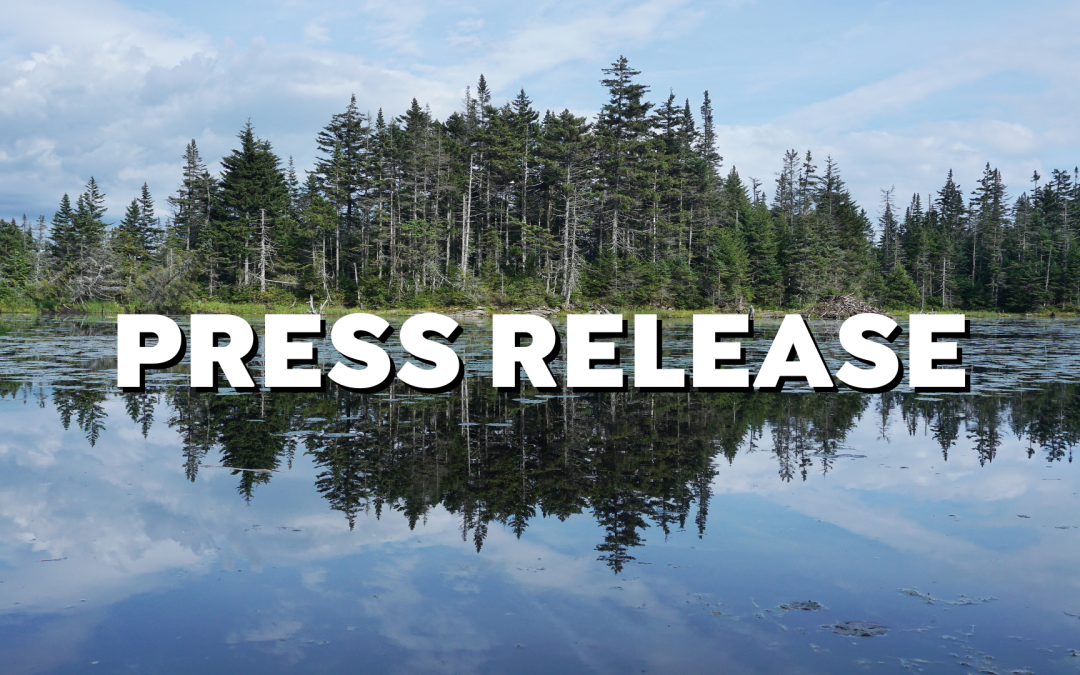Lawmakers introduced legislation today to create a Vermont Climate Superfund Program which would require major fossil fuel companies to reimburse the State for a share of the environmental and infrastructure damage caused by climate change. One hundred and seven legislators, including a supermajority of state senators (20 of 30) and a majority of state representatives (87 of 150), co-sponsored the companion bills, S.259 and H.809.
Senators Dick Sears (Bennington) and Anne Watson (Washington) and Representatives Martin LaLonde (South Burlington) and Amy Sheldon (Middlebury) are lead-sponsors of the legislation.
Sen. Sears chairs the Senate Judiciary Committee, Rep. LaLonde chairs the House Judiciary Committee and Rep. Sheldon chairs the House Environment & Energy Committee. Sen. Watson is the former Mayor of Montpelier and serves on the Senate Natural Resources & Energy and Government Operations Committees.
“Climate change is hitting Vermont hard and costing us billions of dollars,” said Sen. Watson. “Like many people across the state, my constituents in Barre and Montpelier and throughout Washington County were severely impacted by last year’s floods. The costs to clean up are enormous and well outside of what individual Vermonters, businesses, municipalities and even the State can afford. We need to require the Big Oil companies that caused the climate to change to pay their fair share.”
“Vermont has a long tradition of holding polluters accountable,” said Sen. Sears. “If a corporation is responsible for fouling our land or water, we expect them to help pay to clean it up. The Climate Superfund Act would extend that principle to include the companies that have polluted our atmosphere and caused so much damage to Vermont’s environment and infrastructure.”
“Lawmakers have the authority to hold polluters accountable,” said Rep. LaLonde. “The Climate Superfund Act is modeled on the federal Superfund program and similar state hazardous waste management laws. Those laws enable state administrative agencies to recover cleanup and restoration costs from those responsible for causing environmental harms. These strict liability provisions have been in Vermont’s own Waste Management Act for decades and we should extend them to encompass climate damages as well.”
“The pace of climate change is accelerating and the costs are going up,” said Rep. Sheldon. “The burden of paying to recover after extreme weather events cannot only fall on the backs of Vermonters, Vermont communities and taxpayers. Big Oil has an obligation to pay its fair share to help communities become more resilient in a climate-changed world.”
Bills similar to the Vermont Climate Superfund Act have been introduced in Maryland, Massachusetts and New York, where the legislation passed the State Senate in June of 2023 and will be taken up by the General Assembly later this year.
“Momentum for climate action continues to build,” said Lauren Hierl, executive director of Vermont Conservation Voters. “We thank the authors of the Climate Superfund Act for their hard work and congratulate all of the co-sponsoring legislators. As the weather grows more extreme, this policy is needed to protect Vermonters from the rising costs of climate change.”
The following committee chairs and leadership officers co-sponsored the legislation:
- The Senate Majority Leader
- Chairs of the Senate Committees on Economic Development, Health & Welfare, Judiciary, Natural Resources & Energy, Appropriations, Education, Finance, and Government Operations
- The House Majority Leader
- Chairs of the House Committees on Agriculture, Environment & Energy, General & Housing, Government Operations, Health Care, Human Services, Judiciary, Transportation, and Ways & Means
Legislators representing all 14 Vermont counties are signed on as cosponsors.
“Vermonters have seen firsthand the consequences of human-induced climate change, primarily from the burning of fossil fuels, all while the world’s most powerful corporations have profited exponentially from the sales of fossil fuels,” said Robb Kidd, the Conservation Program Manager at the Vermont Sierra Club. “The Vermont Sierra Club firmly supports mandating that the oil industry pay for the damage that is directly attributed to their sales of oil and gas.”
“With similar federal legislation to establish a nationwide Climate Superfund stalled in D.C., states like Vermont and Massachusetts need to embrace their authority to ensure that major fossil fuel companies who profited from selling products that cause climate damage are held accountable for a fair share of the resulting climate disaster recovery and adaptation costs, ” said Elena Mihaly, Vice President of Conservation Law Foundation Vermont. “CLF is committed to helping Vermont lawmakers fill the gap left by federal inaction.”
“It’s no coincidence that 2023 was the warmest year on record in Vermont and also one of the most expensive in terms of climate costs,” said Ben Edgerely Walsh, VPIRG’s Climate & Energy program director. “Vermonters cannot pay for all the damages on their own. It’s time for Big Oil to pay its fair share.”

